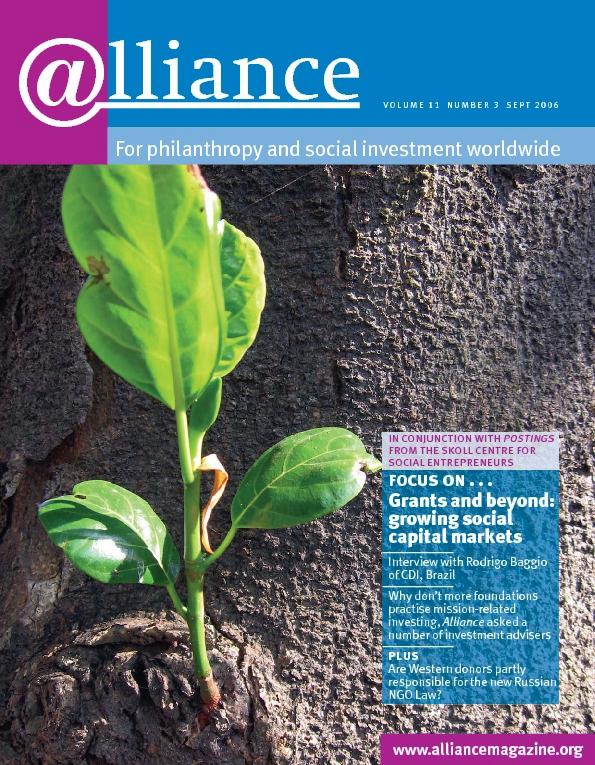The Russian Public Chamber, created on the initiative of President Putin to ensure dialogue between citizens and the state, is now six months old. It has 126 members, all public figures and representatives of NGOs and elected for a term of two years. What has been done in that time?
According to the official website (http://www.oprf.ru), its rules of procedure and code of ethics have been accepted, 17 commissions and 16 working groups on different questions have been set up, and eight statements and recommendations have been accepted. However, it’s not clear how this early ‘paper’ activity is helping to achieve the Chamber’s main goals, which are ensuring dialogue between citizens, public associations and government, providing public oversight of the state’s activities, and supporting the development of civil society according to democratic principles. Third sector opinion remains sceptical.
Meanwhile, in a recent interview for the journal Profile, Public Chamber secretary Evguenii Velikhov said that the Chamber is preparing a report on the state of Russian civil society, to be presented to the President and the public, but conceded: ‘If we speak about strategic goals, such as the development of institutions of civil society, this will take more than one year. If we want civil society, there must be civil organizations, and if we want civil organizations, there must be citizen participation. The problem is that, for years, citizens were taught not to display civil activity and they don’t believe that they are able to do anything.’
For more information
Contact Nastia Akramovskaya of CAF Russia at NAkramovskaya@cafrussia.ru or see http://www.oprf.ru






Comments (0)